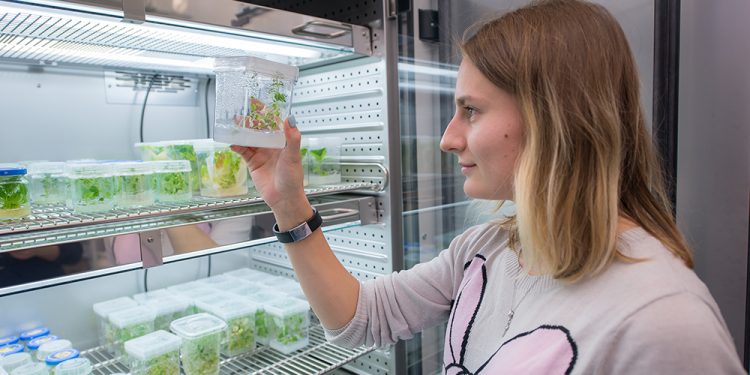This decision was made today at a meeting of the Government of the Russian Federation. The draft resolution on making appropriate changes to the Regulations on the Ministry of Science and Higher Education of the Russian Federation was presented by the head of the department, Valery Falkov.
The proposed addition gives the ministry the function of coordinating scientific research in the field of seed production. The changes should come into force on September 1, 2023, along with the entry into force of the Federal Law “On Seed Production”.
As noted by the head of the Russian Ministry of Education and Science Valery Falkov, the draft resolution was agreed with the relevant departments: the Ministry of Agriculture and the Ministry of Finance of Russia, as well as with the Rosselkhoznadzor. Its implementation will not require an increase in the staff of the ministry and an increase in federal budget expenditures.
The minister noted that the resolution complies with the goal outlined in paragraph 3 of Article 5 of the Federal Law “On Seed Production”. According to this paragraph, the coordination of scientific research in the field of seed production is entrusted to the federal executive body, which performs the functions of developing and implementing state policy and legal regulation in the field of science and higher education, as well as scientific, scientific and technical and scientific and educational societies, public academies of sciences.
In addition, in accordance with the Decree of the Government of the Russian Federation of March 18, 2021 No. 663-r, the Ministry of Education and Science is the responsible executor of the Food Security Doctrine of the Russian Federation in terms of providing seeds of higher reproductions of the domestic selection of main agricultural crops.
Recall that within the framework of the national project “Science and Universities” from 2020 to 2022. The Ministry of Education and Science of Russia has opened 114 new scientific laboratories in the field of breeding, seed production and molecular genetics.
Over the past eight years, budget funding for agricultural research organizations has more than doubled, from 6.6 billion to 15 billion rubles. Over the past two years, 3.7 billion rubles have been allocated for open 35 breeding and seed-growing and breeding centers, and 2.2 billion rubles of additional funding has been allocated for updating the instrumentation base. Thanks to this, domestic producers will be able to compete with foreign companies and be in demand on the world market.
Last year, the Ministry of Science and Higher Education of the Russian Federation allocated 1.5 billion rubles for a leasing program for agricultural research centers. By 2023, the centers will purchase specialized breeding equipment worth 5 billion rubles.
Together with the Ministry of Agriculture of Russia, within the framework of the federal project “Agrarian Science – a Step into the Future”, the Ministry of Education and Science plans to create at least five agrobiotechnoparks and selection schools. In total, 6.2 billion rubles will be allocated for the development of the project until 2030.
Also at the meeting, the results of the work of Russian scientists on the creation of new varieties and hybrids of plants were presented.
So, in recent years, domestic breeders have bred 29 new varieties of potatoes. It is planned that in 2023-2024. the country will be fully provided with elite potato seeds of Russian selection.
The issue of saturating the domestic market with sugar beet seeds is being successfully solved. According to the Department for Coordinating the Activities of Organizations in the Sphere of Agricultural Sciences of the Russian Ministry of Education and Science, 268,000 sowing units of this vegetable crop were produced in the country (26% of the seed market demand). By 2025, domestic breeders will completely cover our country’s need for sugar beet seeds.







